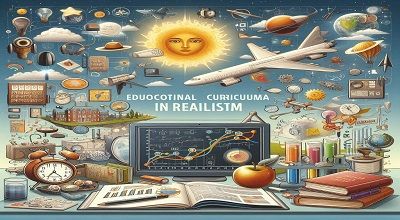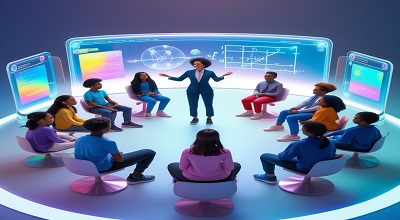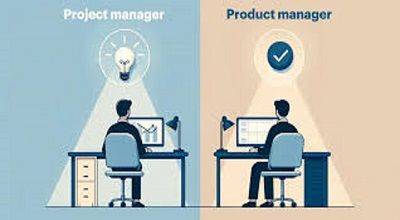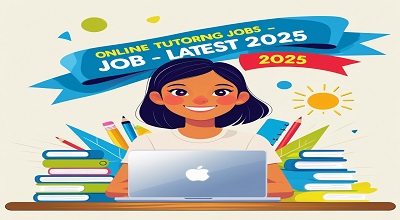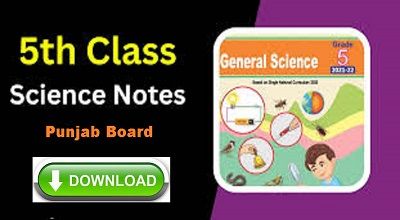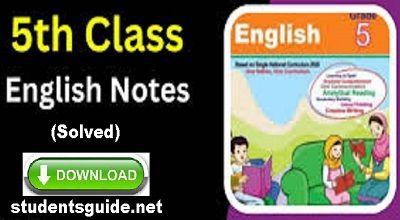Educational Curriculum in Realism
Educational Curriculum in Realism: Realism in education is an educational philosophy. That emphasizes the importance of teaching students about the reality of the world through factual, objective, and empirical knowledge. Rooted in the idea that students should engage with the world around them in a practical, experiential manner. Realism encourages a curriculum focused on real-world applications and observable phenomena.
The latest 2024 curriculum updates within realism aim to bridge the gap between theory and practice. As technology evolves and global challenges intensify. Educational realism provides students with critical thinking skills to navigate the complexities of modern life.
Historical Context of Educational Curriculum in Realism
Realism, as an educational philosophy, has evolved over centuries, beginning with the ideas of ancient philosophers such as Aristotle. In the 17th century, John Locke and Francis Bacon emphasized empirical knowledge. Advocating for education grounded in observable and measurable facts. This pragmatic approach set the stage for realism as it exists today in classrooms across the world.
In the 19th and 20th centuries, realist education gained momentum in response to idealism, which focused on abstract concepts. Realism’s emphasis on practical, hands-on learning was particularly appealing during times of industrial and technological progress. Where education is needed to produce competent individuals for the workforce.
Core Principles of Realism
Realism in education operates on several key principles that guide curriculum development and pedagogical practices. These principles form the foundation of a realist approach to education:
- Objective Knowledge: Education should focus on objective truths that can be verified through observation and experimentation.
- Empirical Learning: Students should learn through hands-on experiences and real-world applications.
- Critical Thinking: Realism emphasizes logic, reasoning, and critical thinking as key components of the learning process.
- Practicality: Curriculum content should be directly applicable to the students’ everyday lives and future careers.
- Discipline-Based Learning: Subject-specific knowledge should be deeply rooted in factual information rather than philosophical conjecture.
Realism in Modern Educational Systems
In 2024, educational systems worldwide are increasingly incorporating realist approaches into their curricula to prepare students for a rapidly changing world. Realism aligns with the demands of a global economy by emphasizing STEM (science, technology, engineering, and mathematics) education, critical thinking, and vocational training. It prioritizes skills that are directly applicable to industry and technology sectors.
Countries like Finland and Singapore have updated their educational policies to reflect a realist framework. Schools in these regions emphasize real-world problem-solving, digital literacy, and interdisciplinary approaches to prepare students for a knowledge-based economy.
Curriculum Design in Realism
A realist curriculum is designed to reflect the realities of the world, ensuring students gain knowledge that is directly applicable to their personal and professional lives. The following characteristics are essential to the realist curriculum design:
- Subject-Centered Approach: Unlike student-centered approaches, realism advocates for a curriculum that is centered on specific subjects, especially those grounded in factual knowledge such as science and mathematics.
- Skill Development: The curriculum emphasizes the development of practical skills such as problem-solving, analytical thinking, and technological proficiency.
- Relevance: Course materials should reflect current realities and include up-to-date information that helps students connect learning to the world around them.
- Structured Learning: Realism encourages a structured and systematic approach to education, where students progress through a well-organized curriculum.
Curriculum developers in 2024 are prioritizing these elements to create educational experiences that are relevant, engaging, and practical for students.
Implementation of Realism in Various Subjects
a. Realism in Science Education
Science is one of the core areas where realism is most applicable. A realist science curriculum in 2024 focuses on empirical evidence, experiments, and real-world applications. Students engage in hands-on experiments, data analysis, and fieldwork that connects scientific concepts to everyday phenomena.
b. Realism in Mathematics
Mathematics education in a realist framework emphasizes problem-solving and real-world applications. In 2024, math curricula are increasingly incorporating technology and software that simulate practical scenarios, such as financial modeling, coding, and statistical analysis.
c. Realism in Social Studies
Social studies curricula under realism encourage students to study history, geography, and politics based on factual analysis rather than ideologically driven narratives. The 2024 curriculum highlights the use of primary sources, critical historical analysis, and the study of current events through empirical methods.
d. Realism in Language Arts
In language arts, realism emphasizes comprehension and communication through clear, factual, and practical language. In 2024, there is a growing trend towards teaching students how to analyze nonfiction texts, legal documents, and technical writing as part of a realist language arts curriculum.
Pedagogical Approaches in Realist Education
Pedagogy in realist education is grounded in active learning and student engagement with the material in a practical, hands-on way. Several pedagogical methods are prevalent in realism-based education:
- Experiential Learning: Students engage in learning through experiences, such as internships, laboratory work, and field studies.
- Problem-Based Learning (PBL): Students work on real-world problems, applying critical thinking and subject knowledge to find solutions.
- Case Studies: In realist pedagogy, case studies are used to provide students with concrete examples of how concepts apply in real-life situations.
- Inquiry-Based Learning: Encourages students to ask questions and investigate real-world issues, fostering a deep understanding of the subject matter.
In 2024, technology plays a key role in facilitating these approaches, with digital simulations, virtual labs, and online collaborative platforms becoming integral to realist teaching methods.
Assessment Strategies in Realism-Based Education
Assessment in realism-based education focuses on evaluating students’ ability to apply knowledge to real-world scenarios. Instead of relying solely on traditional exams, assessment methods in 2024 reflect the practical orientation of the realist philosophy:
- Project-Based Assessments: Students are evaluated based on their ability to complete projects that simulate real-world challenges.
- Performance Tasks: These tasks assess how well students can apply their knowledge in practical situations, such as conducting experiments or solving case studies.
- Formative Assessments: Continuous assessments, such as quizzes, presentations, and group work, are used to gauge student understanding throughout the course.
Assessments are designed to be objective and measure the extent to which students can apply their learning to tangible problems and environments.
Challenges of Integrating Realism in 2024 Curricula
While realism offers many benefits, there are several challenges to fully integrating it into educational systems:
- Resource-Intensive: Realist education often requires substantial resources, such as access to labs, technology, and industry partnerships, which may not be available in all schools.
- Teacher Training: Implementing a realist curriculum requires educators to be well-versed in both subject matter and practical applications. Continuous professional development is necessary to equip teachers with the skills needed for realist teaching.
- Balancing Theory and Practice: Some critics argue that a strictly realist approach might neglect the theoretical and philosophical aspects of education, which are essential for fostering creativity and abstract thinking.
- Adaptation to Digital Learning: With the rise of online education, integrating realism into digital platforms poses unique challenges, such as creating meaningful hands-on experiences in virtual environments.
Conclusion: The Future of Educational Curriculum in Realism
Realism remains a vital and relevant educational philosophy in 2024, as it adapts to meet the demands of an ever-evolving global society. With its focus on empirical learning, practical applications, and critical thinking, realism prepares students for the complexities of modern life and the workforce. As educational systems continue to evolve, the integration of realist principles will likely play an increasingly important role in shaping future curricula.
Innovations in technology, such as artificial intelligence, digital simulations, and virtual labs, are creating new opportunities for realism-based education to flourish. However, it is essential to address the challenges of resource availability and teacher training to ensure that all students can benefit from a realist approach to learning.
This educational curriculum in realism presents an overview of the philosophy’s core principles, applications in various subjects, pedagogical methods, and assessment strategies. As the educational landscape continues to shift in 2024, realism offers a strong framework for equipping students with the skills they need to navigate an increasingly complex world.
FAQs
1. What is Realism in Education?
Realism in education is a philosophy that emphasizes teaching students about the real world through factual, objective knowledge. It encourages practical, hands-on learning and focuses on subjects grounded in reality, such as science, mathematics, and social studies. The goal is to equip students with skills and knowledge that are directly applicable to their everyday lives and future careers.
2. How is the Realist Curriculum Different from Other Educational Philosophies?
Unlike idealism, which focuses on abstract concepts and philosophical ideals, the realist curriculum centers around concrete facts and empirical data. Realism emphasizes the study of observable phenomena and practical applications, while idealist approaches might prioritize imagination or theoretical understanding. The realist curriculum also tends to be more structured and subject-centered, with a focus on skills relevant to the real world.
3. What Subjects Benefit Most from a Realist Approach?
Subjects like science, mathematics, and social studies benefit most from a realist approach. These subjects naturally lend themselves to empirical study, experimentation, and real-world applications. In language arts, realism focuses on understanding non-fiction, technical writing, and clear communication. In 2024, even subjects like computer science and digital literacy are integrated into the realist framework to align with modern technological advancements.
4. How Does the Realist Curriculum Prepare Students for the Workforce?
The realist curriculum prepares students for the workforce by emphasizing critical thinking, problem-solving, and the application of knowledge to practical situations. It focuses on teaching skills that are relevant in real-world careers, such as data analysis, project management, and technological proficiency. By engaging students with hands-on experiences and real-world challenges. The realist curriculum ensures that students are well-equipped for employment in a global economy.
5. What Are the Main Challenges of Implementing Realism in Education?
One of the main challenges of implementing realism in education is the need for resources. Such as access to technology, laboratories, and industry partnerships, which may not be available in all schools. Additionally, teacher training is crucial for a successful implementation, as educators must be knowledgeable about both content and practical applications. Another challenge is ensuring a balance between factual learning and fostering creativity or abstract thinking.
